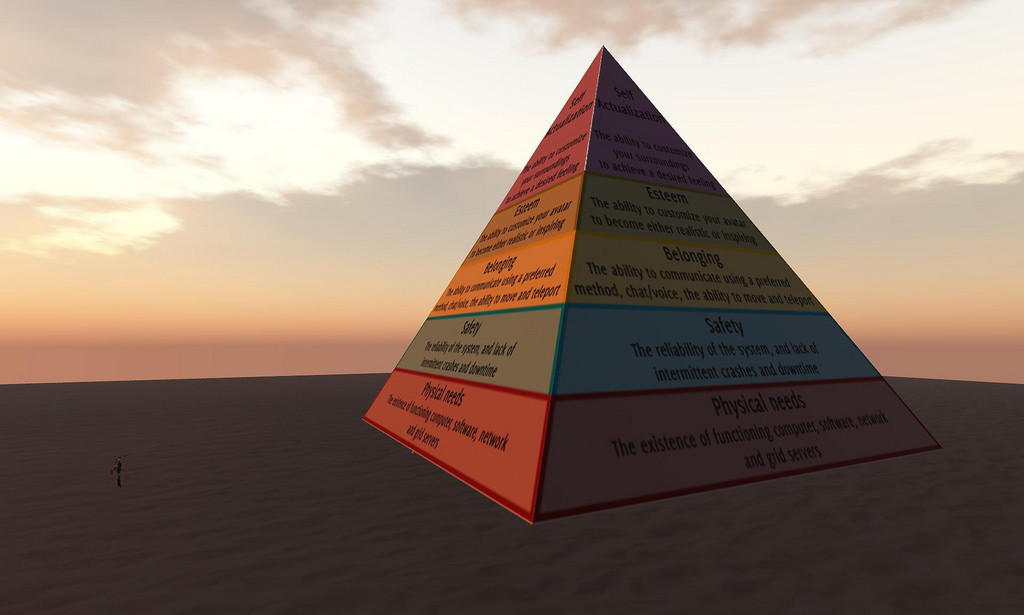
21 Jan The needs of life – Rethinking Maslow’s
Isn’t it time we rethink Maslow’s?
It has been said that the greatest need in the modern world is the need for greater mobile coverage and bigger data plans – even before the “physiological” needs such as shelter.

Maslow’s hierarchy of needs is a theory that focuses on describing the stages of growth in humans. Maslow used the terms “physiological,” “safety,” “belonging and love,” “esteem,” and “self-actualization” to describe the pattern through which human motivations generally move. The goal of Maslow’s Theory is to attain the fifth level or stage: self-actualization.
And we seem to use Maslow’s as a rationale in making decisions or observations. Even though there is evidence that we don’t necessarily behave as per Maslow’s theory.
Over the last thirty years since the insight of EO Wilson and the development of the habitat syndrome / requirement, we have started to realise that we are hard-wired to our environment and it is this connection to nature that forms the basis of our health and well-being. However, over the last 2000 years, particularly in the last 200 years we have placed ourselves within a concrete jungle.
Maslow was right about our basic needs (air, water, food and shelter) but didn’t see the context in which those needs were met – the environment we live in. His hierarchy lead many well-meaning and intelligent individuals to focus on what was in the triangle – not necessarily how they interact and with scant regard to the environment they were placed in.
We all need clean water and air even before we need shelter and before we reach self-actualization.
In a survival sense, yes, we need to have the “physiological” elements met. It is now apparent that due to our hard-wiring to nature we need the right environment to be healthy, to achieve the so-called progression to self-actualization.
Due to our “hard wiring to nature” we may just need the right environment in the cities of the world to journey from “physiological” to “safety” to “belonging and love” to “esteem” and eventually to “self-actualization” needs.
Is it time to change the paradigm, change the hierarchy, change the way we habitat cities?
Rethinking Cities and Nature’s liveability maybe the greatest challenge for the future of cities and how we live.
Seeing the landscape beyond the constraints of embedded thinking, paradigms and governance, is what is needed. Mosaic Insights enables these insights to become ideas that lead to impact. Our insights come from our unparalleled network, experienced staff and collaborative process. We generate ideas that create impact: we drive revolutionary, not incremental, change. We create sustainable, resilient, liveable landscapes that support healthy, productive communities.
By Neil McCarthy

